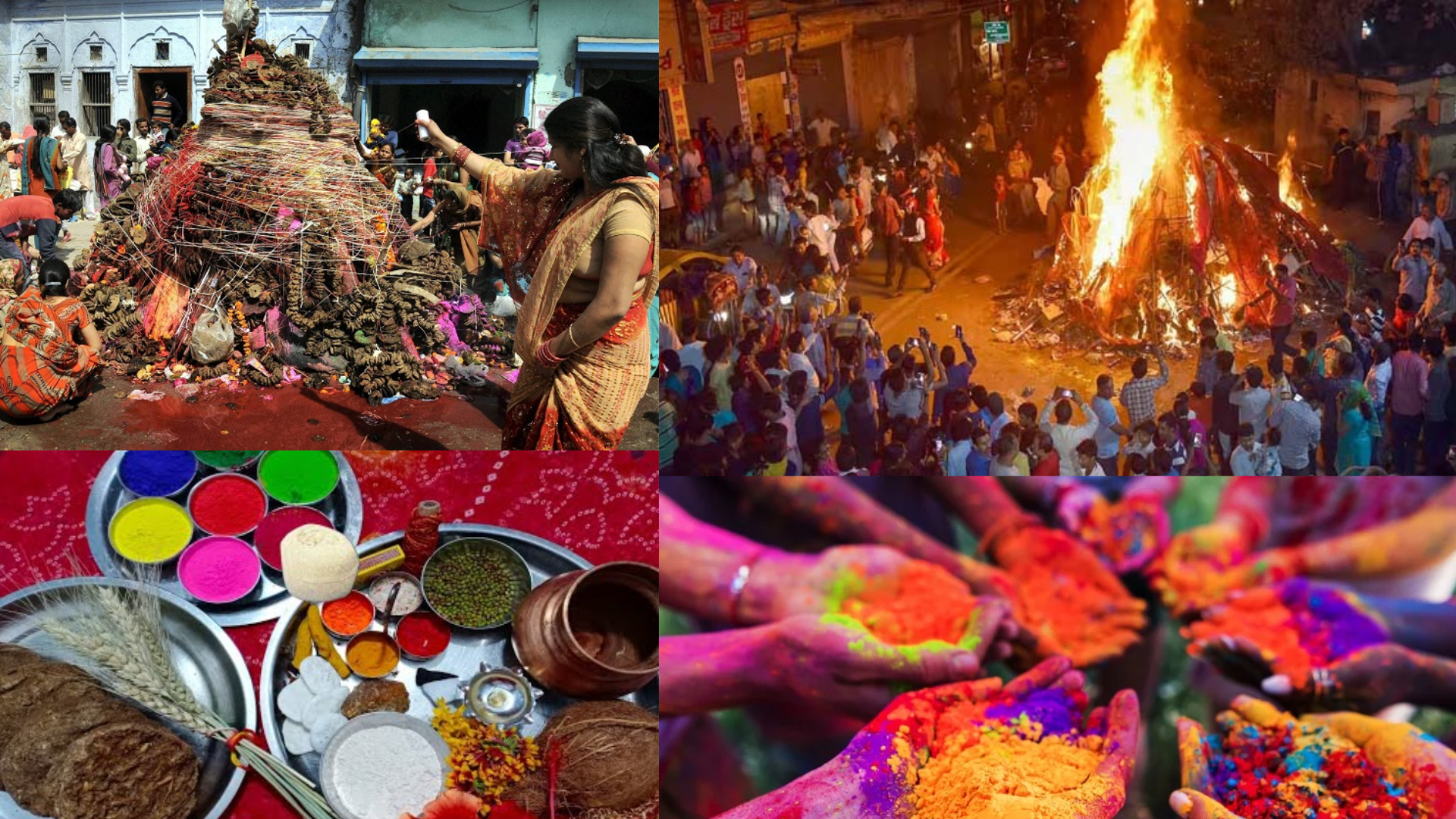Holika Dahan, a significant event in Hindu culture, marks the commencement of the two-day Holi celebrations, symbolizing the triumph of good over evil. This ancient tradition, deeply rooted in mythology, is observed with fervor and devotion across India. As the country prepares to usher in this auspicious occasion, the atmosphere is filled with anticipation and joy, promising a vibrant and unforgettable celebration.
The origin of Holika Dahan can be traced back to Hindu mythological tales, particularly the legend of demon king Hiranyakashyap and his son Prahlada, as documented in ancient scriptures like the Vishnu Purana and the Bhagavata Purana.
Hiranyakashipu, granted protection from death by Lord Brahma, grew arrogant and demanded worship as the supreme deity in his kingdom. However, his son Prahlada remained devoted to Lord Vishnu, defying his father’s orders. Angered by Prahlada’s defiance, Hiranyakashipu enlisted the help of his sister Holika to eliminate his son.
Holika, who possessed a protective cloak, sat with Prahlada on a pyre intending to burn him alive. However, to everyone’s amazement, while Holika perished in the fire, Prahlada emerged unscathed, protected by the divine intervention of Vishnu.
The rituals of Holika Dahan commence with meticulous preparations, including the cleansing of the designated area for the bonfire.
The surroundings are swept, washed, and purified with Gangajal, symbolizing the removal of negativities and obstacles. Devotees then gather samagri, comprising woods, twigs, leaves, cow dung cakes, sesame seeds, dry coconut, and wheat grains, to fuel the sacred fire. The ritual aims to invoke divine blessings for a prosperous and obstacle-free life ahead.
Special arrangements are made to honor Lord Vishnu, Prahlada, and Holika, with idols placed in a designated area to commemorate their story. Puja samagri, including flowers, incense sticks, sweets, and fruits, are offered to the deities, accompanied by the recitation of mantras and prayers invoking divine grace and protection.
Holika Dahan rituals may vary regionally, but the essence remains consistent – a fervent expression of faith and devotion. As the flames engulf the offerings, devotees gather around the bonfire, singing hymns, chanting prayers, and seeking divine blessings. Grains, popcorn, coconut, and chickpeas are roasted in the fire, symbolizing the triumph of good over evil and the renewal of life.
Amidst the festivities, certain dos and don’ts are observed to uphold the sanctity of the occasion. Devotees are advised to take a bath and wear clean clothes before participating in the rituals.
The consumption of meat and alcohol is discouraged, and wearing black or blue-colored attire is prohibited. Eco-friendly materials are recommended for the bonfire to minimize air pollution and maintain environmental sustainability. Caution is urged to prevent accidents or injuries, and adherence to local regulations ensures community safety.
Holika Dahan holds immense significance for Hindus, signifying the victory of righteousness over malevolence. This year, it falls on Sunday, March 24, 2024, offering devotees an opportunity to partake in the sacred rituals and seek divine blessings for a prosperous and harmonious life.
As the flames of the bonfire illuminate the night sky, echoing ancient tales of valor and devotion, Holika Dahan serves as a poignant reminder of the enduring triumph of good over evil and the eternal pursuit of righteousness in the hearts of humanity.





